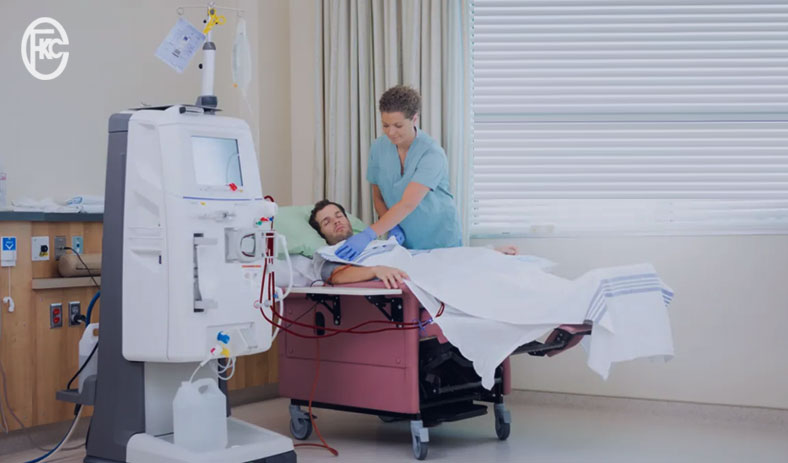
What is kidney dialysis?
Kidney dialysis is a medical procedure that is used to remove waste, toxins and excess fluid from the blood when the kidneys are not able to do so naturally. During dialysis, a machine called a dialyzer is used to filter the blood and clean it before returning it to the body. Dialysis can be done at home or at a dialysis center.
Benefits of kidney dialysis:
1. Removes wastes, toxins and excess fluid from the body
2. Maintains the balance of electrolytes in the body
3. Regulates blood pressure
4. Helps to treat symptoms of kidney failure, such as fatigue, nausea, and shortness of breath
5. Helps to prevent or delay the need for a kidney transplant
6. Maintains quality of life for people with kidney disease.
Types of kidney dialysis:
1. Hemodialysis: This is the most common type of dialysis and involves the use of an artificial kidney (dialyzer) to clean the blood. It works by passing the blood through the dialyzer, which filters out waste products and excess fluid. The filtered blood is then returned to the body.
2. Peritoneal dialysis: This type of dialysis uses the lining of the abdomen (peritoneum) as a filter. The patient is connected to a machine which pumps a sterile solution into the abdomen to help filter out waste products and excess fluid. The solution is then drained and the process repeated.
3. Home Dialysis: This type of dialysis can be done at home using a special machine, and is often more convenient than in-center hemodialysis or peritoneal dialysis.
4. Continuous Renal Replacement Therapy (CRRT): This type of dialysis uses a dialyzer to continuously clean the blood over a period of time, typically 24-48 hours. It is often used in critically ill patients who cannot tolerate traditional hemodialysis or peritoneal dialysis.
5. Nocturnal Dialysis: This type of dialysis is usually done at home while the patient is sleeping. It is typically done three times a week and requires a longer treatment time than traditional hemodialysis or peritoneal dialysis.
How does kidney dialysis work?
Kidney dialysis works by using a machine to filter the blood and remove waste, toxins, and excess fluid from it. During hemodialysis, a special filter is used to filter the blood outside of the body. During peritoneal dialysis, the filter is placed inside the body, in the lining of the abdomen. The blood is then filtered and the clean blood is returned to the body. During home dialysis, the filter is placed outside of the body and the procedure is done at home. In all types of kidney dialysis, the machine is used to monitor and control the filtering process.
Dialysis treatment costs: The cost of dialysis treatment varies depending on the type of treatment and the patient’s insurance coverage. The cost of hemodialysis is typically higher than the cost of peritoneal dialysis because of the additional equipment and medical staff needed for the procedure. Most insurance plans cover some or all of the cost of dialysis treatment.
Importance of kidney dialysis: Kidney dialysis is a life-saving treatment for people with kidney failure who no longer have the ability to filter their blood naturally. By removing toxins and excess fluid from the blood, dialysis helps to maintain a balance of electrolytes, regulate blood pressure, and prevent the need for a kidney transplant. Dialysis also helps to maintain a good quality of life for those with kidney disease.
Conclusion
Kidney dialysis is an important medical procedure that helps people with kidney failure to filter their blood and remove waste, toxins, and excess fluid when their kidneys are no longer able to do so naturally. It helps to maintain a balance of electrolytes, regulate blood pressure, and prevent the need for a kidney transplant. The cost of dialysis treatment varies depending on the type of treatment and the patient’s insurance coverage. Consult with Central Florida Kidney Centers which can provide you better dialysis treatment in Orlando, Florida.